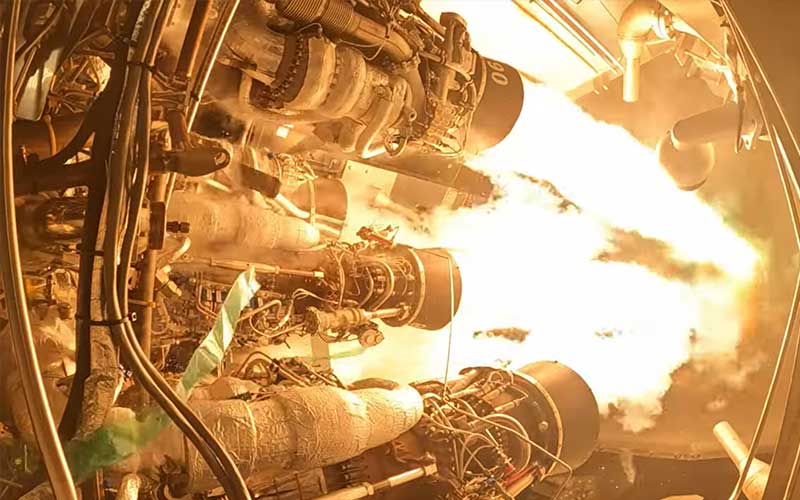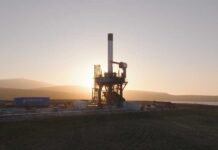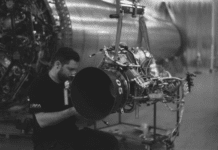
The results of a preliminary investigation into what caused an RFA ONE first stage to burst into flames have identified an oxygen fire in one of the turbopumps as the culprit.
On 19 August, German launch provider Rocket Factory Augsburg conducted a static fire test of the first stage of its RFA ONE rocket on the company’s launch pad at SaxaVord Spaceport in Scotland. While the stage had already completed two short static fire tests, the 19 August test was the first with all nine of its Helix rocket engines installed.
A video captured by the BBC shows an explosion occurring just as all nine engines ignite. A horizontal stream of flames then appears, followed by the entire stage going up in flames, resulting in its complete destruction.
In an update on LinkedIn on 22 August, RFA COO Dr. Stefan Brieschenk announced that the company had completed an initial internal review. In what Dr. Brieschenk describes as “very preliminary” findings, he explains that the company has identified an “oxygen fire in one of the turbopumps” as the root cause of the incident.
“That engine and that turbopump have run before without issues, wrote Dr. Brieschenk. “Eight engines ignited. We had multiple back-up and safety systems in place that were supposed to shut everything down – but things did not align on Monday as planned.”
According to major shareholder OHB, RFA was just weeks away from attempting the rocket’s inaugural flight when the incident occurred, which undoubtedly adds to the disappointment.
“Monday evening was a nightmare, but the dream is alive, and we will make it reality,” Dr. Brieschenk reassured.




